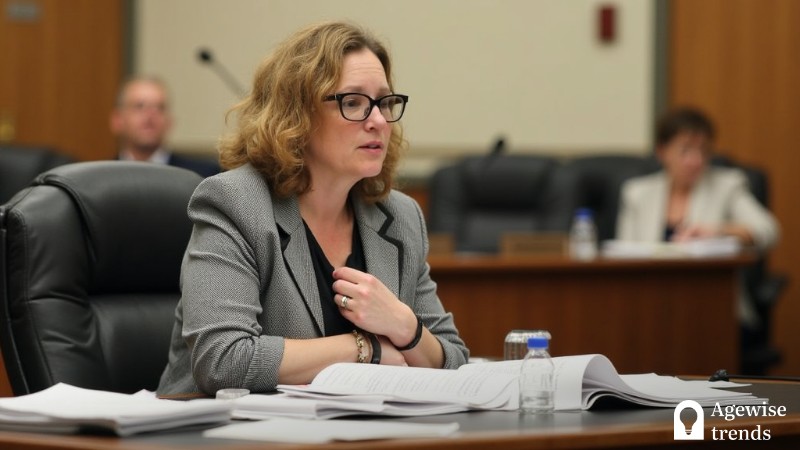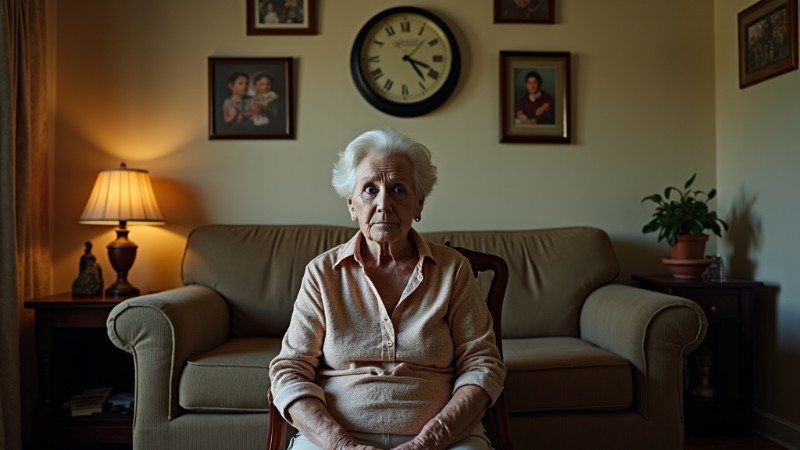Alzheimer’s disease, a progressive neurological disorder that impairs memory, thinking, and behavior, continues to be one of the most significant public health challenges facing the United States. With millions of Americans affected by Alzheimer’s and related dementias, the disease not only impacts individuals but also places immense strain on caregivers and healthcare systems.
Various efforts have been put in place to address these challenges, with a particular focus on improving caregiver support, promoting brain health, and advancing research. These initiatives are embodied in legislative actions such as the bipartisan BOLD Infrastructure for Alzheimer’s Reauthorization Act, which is set to make significant strides in supporting public health initiatives and dementia research nationwide, including in Minnesota.
Key Takeaways
Minnesota is taking proactive steps to address the growing public health challenge of Alzheimer’s disease by supporting caregivers and advancing research.
- Training programs are being offered in Minnesota to equip caregivers with the skills and knowledge needed to manage the complex needs of individuals living with Alzheimer’s disease.
- Respite care options, such as adult day programs and in-home care services, are available in Minnesota to provide temporary relief for caregivers and prevent burnout.
- The BOLD Infrastructure for Alzheimer’s Reauthorization Act has been reauthorized, allocating $165 million over five years to support public health efforts aimed at combating Alzheimer’s disease and dementia.
The importance of supporting caregivers
Alzheimer’s caregivers play an indispensable role in managing the daily needs of individuals living with the disease. Yet, the demands of caregiving can lead to significant physical, emotional, and financial stress. To help alleviate some of these burdens, several programs and services have been developed to support caregivers. Minnesota has been at the forefront of such initiatives, with programs tailored to ensure that caregivers are equipped with the resources and support they need.
Training programs- One of the most critical aspects of caregiver support is training programs. These programs aim to teach caregivers how to manage the complex needs of those with Alzheimer’s disease, from understanding behavioral changes to providing personal care. The training not only helps caregivers feel more confident but also improves the quality of life for the individuals they care for.
In Minnesota, community-based organizations and healthcare systems offer workshops and courses designed to address common caregiving challenges. These sessions provide practical solutions for daily tasks, such as managing medications, handling challenging behaviors, and ensuring a safe living environment.
Respite care- In addition to training, respite care plays a crucial role in caregiver support. Alzheimer’s caregiving can be overwhelming, and respite care offers temporary relief by providing caregivers with a break.
This care can take various forms, including adult day programs or in-home care services. Respite care ensures that caregivers can recharge, thus preventing burnout and improving their long-term ability to provide quality care. Minnesota offers several respite care options, many of which are funded by state and federal initiatives aimed at reducing caregiver stress.
Support groups- Another vital resource for caregivers is the existence of support groups. These groups provide a safe space for individuals to share their experiences, challenges, and successes with others in similar situations.
Facilitated by trained professionals, these groups help caregivers cope with the emotional strain of caregiving by offering emotional support and practical advice. In Minnesota, support groups are often offered through local Alzheimer’s associations, senior centers, and hospitals, and they are designed to meet the specific needs of caregivers based on their geographical location and caregiving situation.
Legislative efforts to combat Alzheimer’s disease
On the national stage, legislative efforts such as the BOLD Infrastructure for Alzheimer’s Reauthorization Act are crucial in supporting Alzheimer’s research and caregiving initiatives. The BOLD Act was first introduced in 2018, and its reauthorization has been seen as a significant victory for the Alzheimer’s community. This bipartisan bill allocates $165 million over five years to support public health efforts aimed at combating Alzheimer’s disease and dementia.
The BOLD Act focuses on funding public health initiatives to improve brain health, reduce dementia risks, and improve care for Alzheimer’s patients. It also establishes public health centers of excellence to advance Alzheimer’s interventions and supports state health departments in adapting dementia care strategies.
Senators Susan Collins (R-ME) and Catherine Cortez Masto (D-NV) led the reauthorization effort, emphasizing the need to address Alzheimer’s as a public health crisis and provide vital resources to families and caregivers. This legislation marks a significant step in improving the nation’s response to Alzheimer’s.
Advancing Alzheimer’s research and public health
In parallel with caregiver support, research into Alzheimer’s disease has made significant strides over the years. Advances in research are not only leading to a better understanding of the disease but also to breakthroughs in treatment and early diagnosis.
Researchers are working to identify biomarkers that can detect Alzheimer’s at earlier stages, allowing for more effective intervention and management. In Minnesota, research institutions like the University of Minnesota are conducting cutting-edge studies that aim to uncover the underlying causes of Alzheimer’s and develop treatments to slow or even reverse its effects.
The role of the National Institute on Aging cannot be overstated. The NIA funds a wide range of Alzheimer’s research, from basic science to clinical trials, and plays a central role in the development of treatments for Alzheimer’s. The funding authorized by the BOLD Infrastructure Act contributes significantly to the NIA’s research efforts, allowing for larger studies and more comprehensive research programs.
Moreover, data grants provided by the BOLD Act are helping to improve the analysis Alzheimer’s-related data, including caregiving patterns, health disparities, and the impact of Alzheimer’s on different communities. This data is essential for shaping future public health policies and ensuring that interventions are effective across diverse populations.
Minnesota’s commitment to dementia care
Minnesota has taken a proactive stance in addressing the needs of individuals living with Alzheimer’s and dementia, as well as their caregivers. Beyond national initiatives like the BOLD Act, Minnesota’s state-level programs are specifically designed to meet the unique needs of its residents. The Dementia Care Education and Support Program is one such initiative that focuses on providing training for caregivers and healthcare professionals to ensure high-quality care for people with dementia.
Additionally, the Minnesota Brain Health Initiative works to promote awareness about the importance of brain health and early intervention. The initiative focuses on educating the public about risk factors for Alzheimer’s and other dementias, encouraging early diagnosis, and providing caregivers with the necessary resources to manage the disease.
A key element of the state’s Alzheimer’s strategy is respite care. Minnesota funds a network of respite care providers to give caregivers temporary relief, helping to prevent burnout and ensuring families receive ongoing support without compromising their well-being.
The role of community engagement in Alzheimer’s care
Alzheimer’s care requires active community engagement alongside healthcare professionals and caregivers. In Minnesota, non-profits like the Alzheimer’s Association of Minnesota-North Dakota raise awareness, provide educational resources, and offer support groups and helplines for caregivers.
Additionally, local businesses are increasingly playing a role in supporting Alzheimer’s awareness. For instance, some businesses in Minnesota participate in fundraising efforts, such as the annual Walk to End Alzheimer’s, and others offer discounts and incentives to families caring for someone with Alzheimer’s. These community-driven efforts help to ensure that Alzheimer’s patients and caregivers are not isolated, and that the public remains engaged in efforts to fight the disease.
The future of Alzheimer’s care and research
Alzheimer’s care and research show promise, but they will need sustained investment and attention. The continued expansion of support programs for caregivers, as well as advancements in Alzheimer’s research, will be crucial in addressing the growing needs of the aging population.
With the aging baby boomer generation, the number of people living with Alzheimer’s is expected to rise significantly in the coming decades, making it imperative that efforts to combat the disease remain a national priority.
The BOLD Act is a vital step forward, but more work remains. Collaboration between policymakers, researchers, and caregivers is key to understanding and treating Alzheimer’s effectively.
By addressing immediate caregiver needs and long-term research goals, Minnesota and national initiatives are paving the way for a future where Alzheimer’s no longer threatens our communities. These efforts will shape dementia care for future generations, ensuring families receive the support they need.















